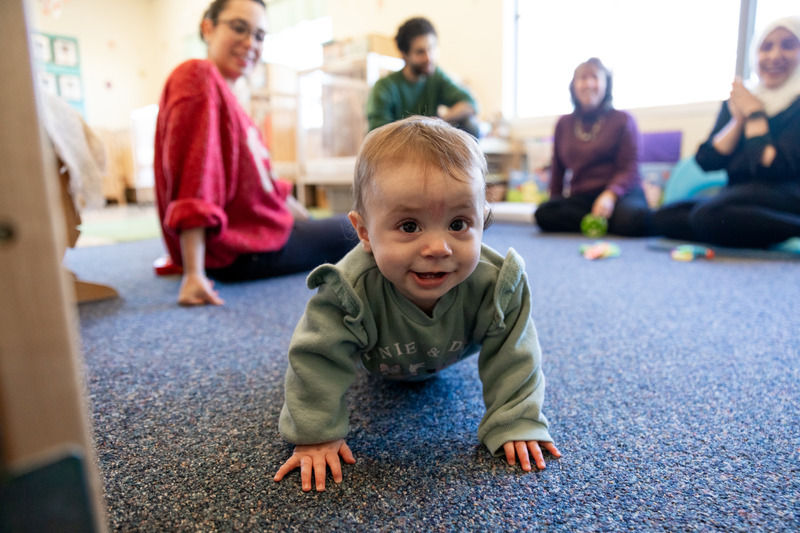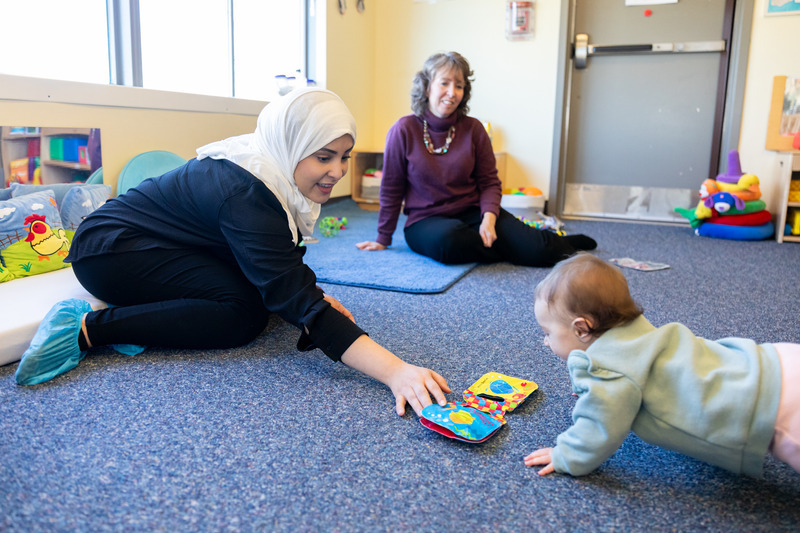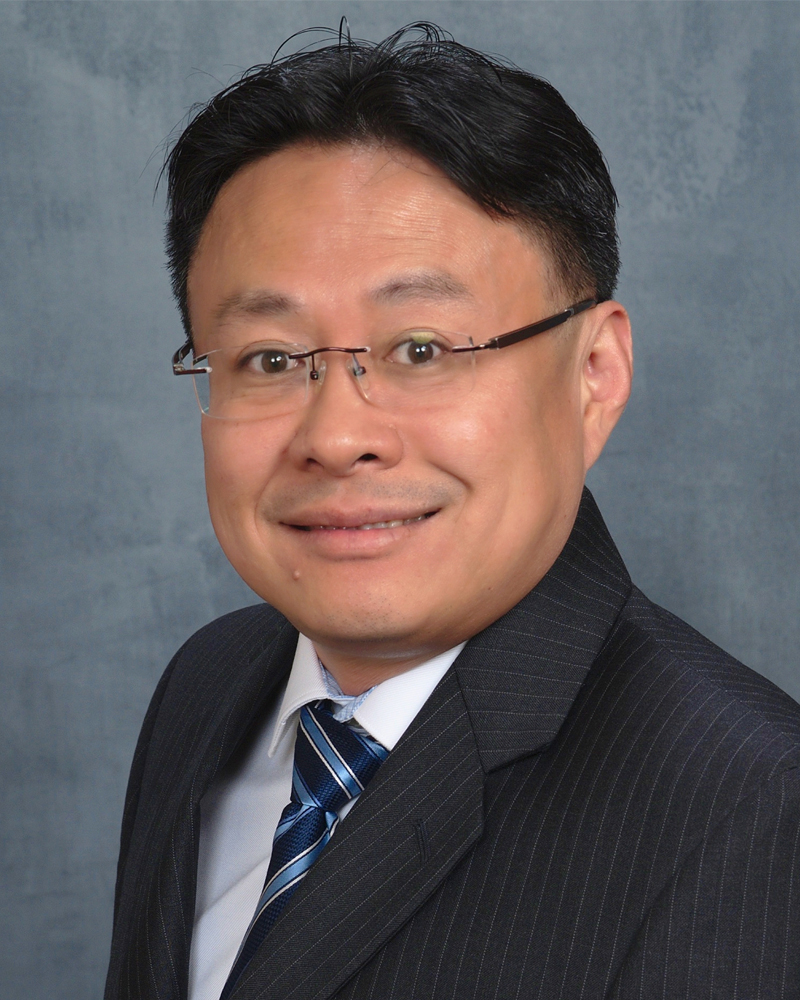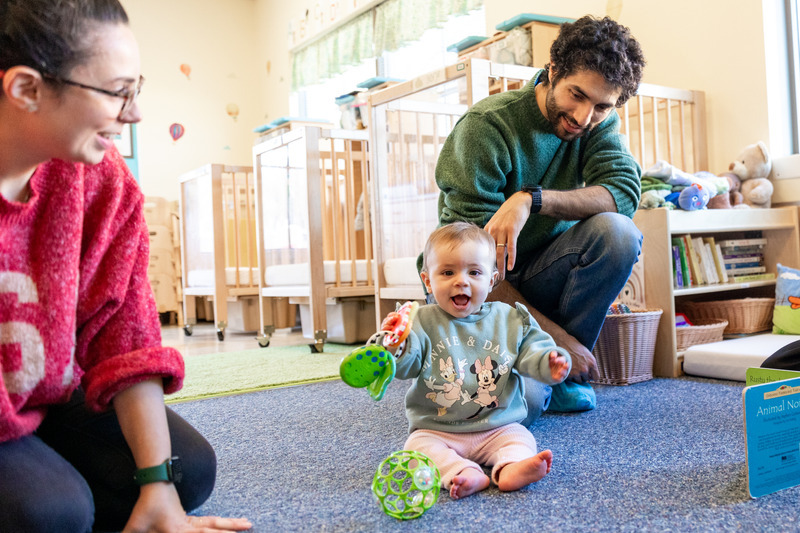


Detecting developmental delays earlier
Photos by Ashley Barnas Larrimore March 21, 2024
Physical therapy professor creating smart baby monitor with prestigious NIH Small Business Innovation Research grant
As a first-time mom, Stephanie Kaznica remembers wondering why her toddler wasn’t talking yet. She was babbling a bit but not saying complete words. Worried, she brought up the issue with her pediatrician at her daughter’s 18-month well visit. But during the 15-minute appointment, her physician brushed it off as “first-time mom jitters.” He recommended daycare to jumpstart her talking.
At Ava’s next well visit at 24 months, nothing had changed, and Kaznica knew something was wrong. After navigating a complex system, Ava got her autism diagnosis at age 3.
Autism can be diagnosed as early as 18 months — when Kaznica first started noticing signs. Kaznica’s second child, Cole, was also diagnosed with autism shortly after age 3. While he was evaluated earlier, his non-qualifying gross motor delays prevented insurance coverage of early intervention services.
“In the first years of life, it can be tough to diagnose developmental delays,” said Michele Lobo, an associate professor of physical therapy at the University of Delaware College of Health Sciences. “Some kids start walking at 6 months while others start at 18 months, and that’s all typical.”
Those early years are crucial to child development, and early intervention in cases of developmental delays can make a huge difference in outcomes.

“If you have a delay, early intervention can minimize gaps across time,” Lobo said. “Without treatment, a child’s gaps with their peers get bigger and bigger.”
Those gains can be hard to get back.
“You can’t make up for lost time and learning experiences,” Lobo said. “If we identify a developmental delay at age 2, providing children double the intervention does not bring those opportunities back. It’s not to say intervention isn’t helpful, but the earlier we identify delays and provide intervention, the better for the child.”
Lobo, a pediatric physical therapist who co-directs the Move 2 Learn Innovation Lab on STAR Campus and creates wearable tech and play-based interventions as part of the UD MakerNetwork, has partnered with a Virginia-based social innovation company to design a product that could help all parents.

With help from Tony Ma, cofounder of Benten Technologies, they’re harnessing computer vision and natural language processing to create a surveillance device like a baby monitor or an attachment to a mobile device. The Platform to Recognize and Evaluate Children for Age-Appropriate Response and Early Detection of Delays (PRECARE) aims to detect developmental delays earlier. PRECARE is funded through a $385,000 Small Business Innovation Research (SBIR) grant from the National Institutes of Health (NIH), obtained by Benten in partnership with Lobo and other research partners at ChristianaCare and the University of Houston from the Eunice Kennedy Shriver National Institute of Child Health and Development.
“As an entrepreneur, I’ve always wanted to tackle the wicked problems,” Ma said. “At Benten, we’re the crazy ones, the misfits, the rebels, the ones who see things differently to believe that we can change the world.”
Ma grew up during the Vietnam War era. Both he and his mother nearly died during his birth at a rural clinic. His adverse childhood experiences included staying in bunkers during the fall of the south in Vietnam, escaping the country as boat refugees and almost dying at sea, and living in a refugee camp for seven months, where he contracted tuberculosis. His lived experiences drive his passion for maternal and child health and served as a launching pad for his career as an innovator dedicated to addressing health disparities. Ma is also the father of a child who had developmental delays and was helped by early intervention. He saw how other families could benefit from PRECARE if their children were diagnosed early.
The need for this kind of supportive technology is stark. According to their grant application, over 63% of babies in the U.S. do not receive developmental surveillance. Just 10% or less of babies with developmental delays are being correctly identified and receiving the early intervention they need.
“Parents are already using audio and video monitors,” Lobo said. “Our device could serve that same purpose but with added benefits. It could monitor the child’s breathing, gauge when they’re awake, asleep, or playing safely, and provide more data about what’s happening every day in the child’s natural environment.”
That data could be shared with pediatricians, leading to better health outcomes.
“Pediatricians have a lot of pressure on them. A lot must happen during these short well visits; they must ensure preventative care is given, that the baby is safe and healthy and that the parent is supported,” Lobo said. They only see the child for a snapshot in time and must decide whether the child is developing typically. The baby could be tired that day or perform better than usual. That snapshot may not be representative of the child’s everyday life.”
With PRECARE, physicians could have a data-enhanced picture of a child’s development, boosting confidence in their assessments, which would extend beyond observations at a pediatric well-visit.

PRECARE could also serve as a source of high-quality information for parents.
“Kids are falling through the cracks. People have babies, and they don’t always know what to do with them; this is true for parents across education levels,” Lobo said. “This technology has the potential to transform healthcare and make a difference for physicians, families, and children.”
Ma and Lobo will also ensure that the assistive technology is accessible to all.
“Everybody has the same amount of time but cannot use their time equally. That’s an equity issue,” Ma said. “Addressing equity from a time perspective is a great equalizer. Technology can help solve that issue, and we believe an informed consumer is also an empowered consumer.”
Kaznica believes a device like this could have helped her.
“My daughter’s gross motor delays might have been picked up earlier,” she said.
She believes speech issues could also have been diagnosed earlier through PRECARE.
“Once she got consistent help through targeted interventions, my daughter saw huge gains. She started talking right away,” Kaznica said. “Early intervention would have made a big difference.”
Kaznica thinks back to that day in the pediatrician’s office, where her concerns were dismissed, and how PRECARE could have empowered her.
“Doctors thought I was a nervous, first-time mom,” she said. “Having hard data to show them exactly what I was experiencing at home would have validated my concerns and shown them that I wasn’t overly worried.”
Contact Us
Have a UDaily story idea?
Contact us at ocm@udel.edu
Members of the press
Contact us at 302-831-NEWS or visit the Media Relations website

